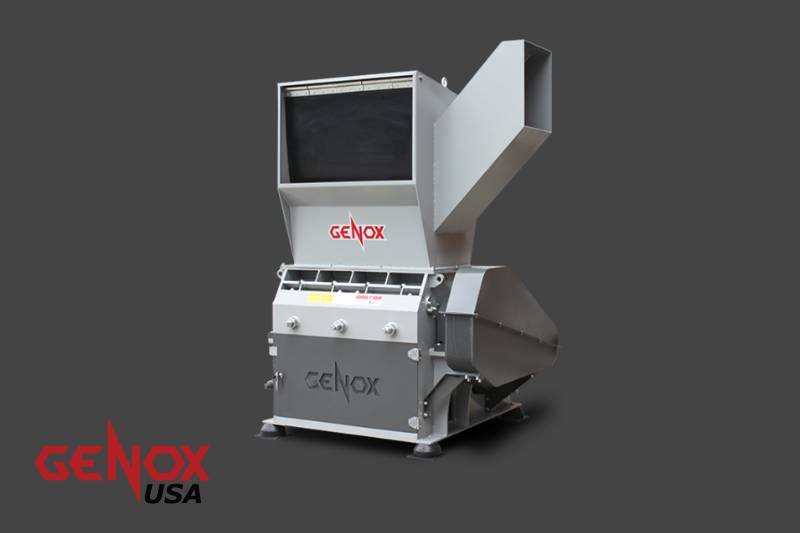As sustainability becomes a central focus for manufacturing plants, incorporating new advances in recycling technology can significantly reduce environmental impact. The development of more efficient recycling technology is transforming how companies manage waste and integrate waste management strategies into their production processes.
In this blog, we’ll explore the role of advanced industrial shredders and granulators in promoting sustainability, reducing waste, and enhancing recycling management in manufacturing plants.
1. The Need for Sustainable Waste Management in Manufacturing
Manufacturing industries produce vast amounts of waste, from excess materials and offcuts to defective products and packaging. Traditionally, a large portion of this waste ended up in landfills, contributing to environmental pollution and resource depletion. However, with growing concerns about the environmental impact of manufacturing, there is an increasing emphasis on sustainability and recycling.
By adopting new advances in recycling technology, manufacturers can reduce the volume of waste produced, recover valuable materials, and lower their carbon footprint. In addition to the environmental benefits, sustainable waste management practices can also improve cost-efficiency by reducing disposal fees and generating revenue from recycled materials.
2. The Role of Advanced Recycling Technology
The development of recycling technology has made it possible for manufacturing plants to process their waste more efficiently and effectively. The integration of industrial shredders and granulators allows manufacturers to reduce the size of waste materials, making them easier to recycle or repurpose.
- Shredders: These machines break down large, bulky waste materials, such as metal scraps, plastic components, and wooden pallets, into smaller, manageable pieces. By reducing the size of the waste, shredders make it easier to transport and recycle materials.
- Granulators: Used primarily for softer materials like plastics, granulators turn waste into fine granules that can be reintroduced into the production process. This enables manufacturing plants to reuse raw materials and reduce the need for new resources.
These technologies are essential for recycling management in manufacturing, helping companies adopt a circular economy approach where waste is minimized and resources are continually reused.
3. Benefits of Industrial Shredders and Granulators in Recycling
Integrating advanced industrial shredders and granulators into a plant’s recycling process offers several key benefits for both the environment and the company’s bottom line:
- Waste Reduction: By breaking down materials into smaller pieces, shredders and granulators make it easier to recycle and transport waste. This reduces the volume of waste sent to landfills, decreasing environmental pollution.
- Cost Savings: Processing waste on-site with shredders and granulators can significantly lower transportation and disposal costs. Additionally, materials like metal and plastic can be resold or reused in production, generating additional revenue for the company.
- Improved Efficiency: The ability to reduce, recycle, and reuse materials streamlines waste management and reduces the reliance on external disposal services. This creates a more efficient, self-sufficient waste management system for manufacturing plants.
- Sustainability Goals: Using advanced recycling technology helps companies meet sustainability targets and comply with environmental regulations. In many cases, companies that invest in sustainable practices can also improve their brand reputation and appeal to eco-conscious consumers.
4. How Recycling Technology Supports a Circular Economy
One of the key concepts in sustainable manufacturing is the circular economy, where products and materials are reused, repaired, and recycled rather than being disposed of after a single use. New advances in recycling technology play a crucial role in supporting this model by enabling companies to recover valuable materials from their waste streams.
For example, industrial granulators can break down plastic waste into small pellets, which can then be melted down and used to create new plastic products. This process not only reduces waste but also lowers the demand for virgin raw materials, conserving natural resources and reducing the environmental impact of production.
By embracing a circular economy approach, manufacturing plants can create a closed-loop system where waste is continually processed and reused, significantly reducing the need for landfill disposal.
5. The Future of Recycling in Manufacturing
As technology continues to evolve, the future of recycling management in manufacturing will likely see even more advanced solutions for waste processing and resource recovery. Some of the emerging technologies include:
- AI-Powered Sorting Systems: Artificial intelligence (AI) is being used to improve the accuracy and efficiency of sorting materials for recycling. These systems can identify and separate different types of waste, such as plastics, metals, and paper, with greater precision.
- Advanced Shredding Techniques: New developments in industrial shredders are allowing manufacturers to process an even wider range of materials, from hazardous waste to electronic components. This expands the potential for recycling and recovery in industries that produce complex or hazardous waste streams.
- Material Recovery Innovations: Technologies that recover valuable materials from waste, such as rare metals or energy-rich compounds, are becoming more sophisticated. This allows manufacturing plants to recover more resources from their waste and further reduce their reliance on new raw materials.
6. Implementing Advanced Recycling Technology in Your Plant
For manufacturing plants looking to improve their waste management practices, implementing new advances in recycling technology is a critical step. Here are some strategies to get started:
- Assess Your Waste Streams: Begin by analyzing the types of waste your plant produces and identifying materials that can be recycled or repurposed. This will help determine the most appropriate equipment for your recycling needs, whether it’s a shredder, granulator, or a combination of both.
- Invest in High-Quality Equipment: Choosing the right size reduction equipment is crucial for efficient recycling. High-quality industrial shredders and granulators from trusted providers like Genox USA ensure that your plant can process waste effectively and generate the best results.
- Integrate a Recycling Management System: Establish a comprehensive recycling management system that tracks your waste, identifies opportunities for reuse, and ensures compliance with environmental regulations. This system should also include regular maintenance and monitoring of your recycling equipment to ensure optimal performance.
Contact Genox USA to Learn More About Recycling Technology
With new advances in recycling technology, manufacturing plants can significantly improve their waste management practices, reduce environmental impact, and achieve their sustainability goals. By integrating advanced industrial shredders, granulators, and other cutting-edge equipment, manufacturers can embrace a more sustainable, circular economy approach.
At Genox USA, we specialize in providing advanced recycling technology tailored to the unique needs of manufacturing industries. Contact us today to learn how our solutions can help you improve your plant’s sustainability and efficiency.
Contact Genox USA for more information about our recycling technology

